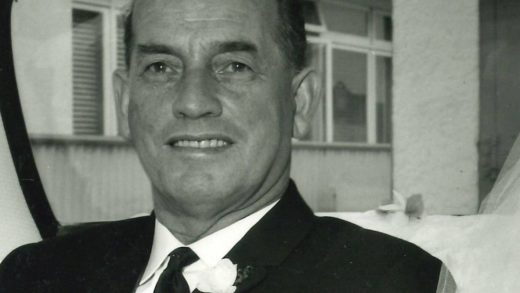
New Zealand farmers need to stop “chopping the heads off tall poppies” and start listening to consumers or risk being left behind, according to one of their own.
Glenorchy farmer Chanelle O’Sullivan said negative feedback on a recent episode of TVNZ’s rural magazine show Country Calendar showed how out of touch with international consumer trends many New Zealand farmers were.
The episode focused on Lake Hāwea Station, Australasia’s first certified carbon zero farm, run by Geoff and Justine Ross.
One segment covered sheep shearing at the station.
READ MORE:
* Regenerative agriculture helps our meat stand out from the herd
* Wonderful wool, our ‘supermaterial’, is at a crossroads – adapt or disappear
* Alternative foods not a threat if farmers take diverse outlook for future farming
The Rosses painted the shearing board white to show any blood on the sheep. They also had mattresses placed at the bottom of the chute sheep are fed through after being shorn, to protect the animals from bruising.
Katherine Edmond
Classical music was played to sheep being shorn at Lake Hāwea Station, enraging some Country Calendar viewers.
Classical music was played and progress monitored based on sheep experience rather than each shearer’s tally.
While some viewers labelled the unconventional practices, intended to keep the sheep calm, “woke”and “PC BS”, O’Sullivan said many of those criticisms were misguided.
“From conversations I’m seeing online, we take for granted our ability to farm, produce and sell into markets that often we have little knowledge about, and those markets are changing faster than anyone can imagine.
“How long can we continue with business as usual before our consumer markets demand more? And if we can’t produce what they want, they can go elsewhere.”
Katherine Edmond
Station owner Geoff Ross says the farm will keep pursuing environmentally sustainable practices.
O’Sullivan, who has a background in agriculture, animal health, food and beverage marketing, and entrepreneurship, said the “marketing spin” fed by politicians and industry leaders for the last 20 years didn’t appear to have the same punch it once did.
“We are a teeny, tiny market, located at the bottom of the world with fuel and freight prices rising,” she said.
“Does China actually understand or particularly like our grassfed meat like we’ve been led to believe?
“Research and buying power shows that they actually prefer the look and taste of grain fed, marbled beef. Are we listening to our consumers? If they don’t want what we have, how can we talk about what we have from a different angle?”
By better understanding their consumers and improving farming practices over time, New Zealand farmers would again be able to command a premium for their produce, she said.
That would put more money in farmers’ pockets and increase their ability to be able to reinvest in farms.
“We need to listen to our consumers and if that means putting a mattress at the bottom of your damn shearing chutes for a higher return, bloody well do it,” she said.
“If our consumer wants to know that our farms are carbon-neutral, do the maths, get the certification, create a sub-brand and yell it from the rooftops.”
O’Sullivan said it was time farmers stopped “chopping the head off the tall poppies” and took ownership of their fate.
Those who didn’t trust the industry or the Government to steer them in the right direction could get together with other farmers and brainstorm how to make changes themselves.
“Soon enough you’ll be the tall poppy and you’ll realise that, although it’s uncomfortable to buck the trend, it looks pretty bloody good from up there.”


